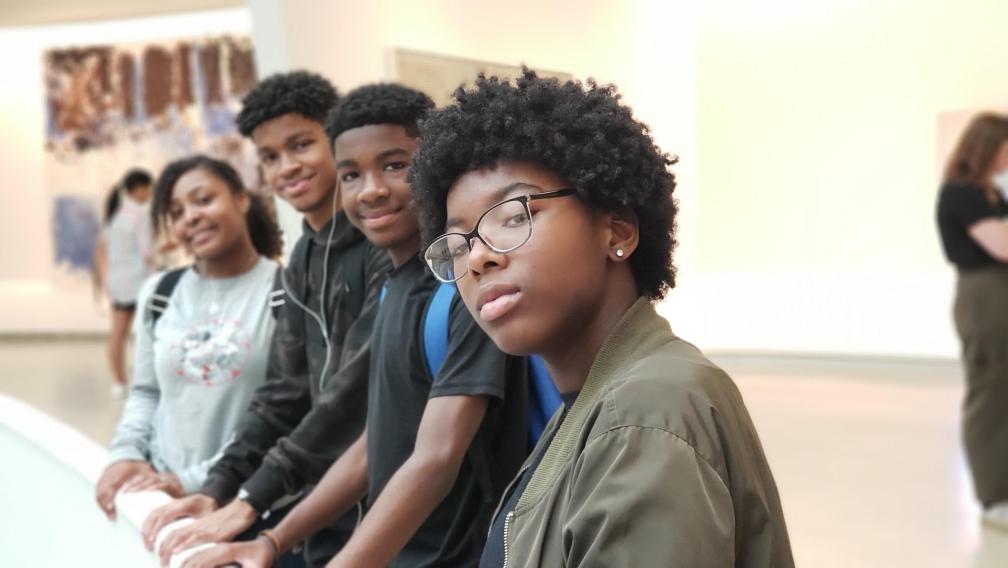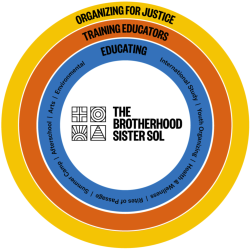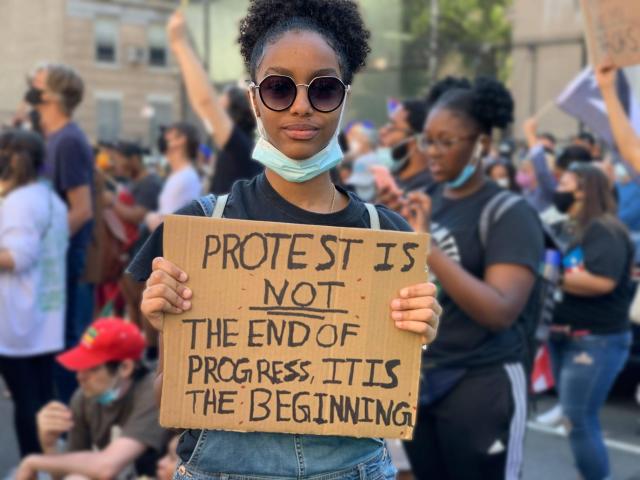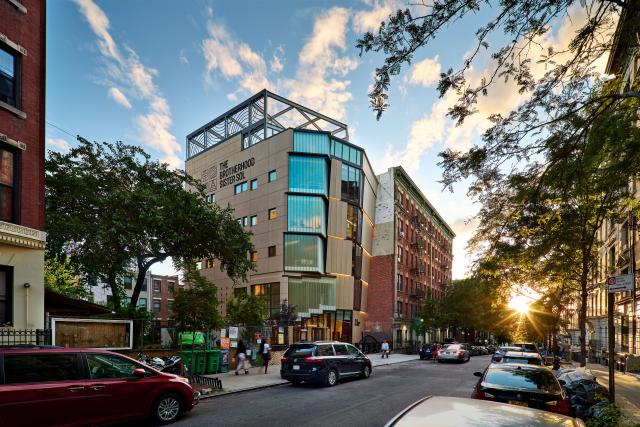For more than 25 years, The Brotherhood Sister Sol (BroSis) has been a champion of opportunity for all, utilizing education, organizing, and training as pathways to challenge inequity. Headquartered in Harlem, New York, with a focus on Black and Latinx youth, BroSis is where young people claim the power of their history, identity, and community to build the future they want to see.
BroSis' multilayered model is robust and can be understood through the lens of concentric circles. At the center, it provides comprehensive services rooted in education, helping young people develop a critical understanding of their history, identity, and role in society. Since 1995, BroSis has developed over 5,000 young agents of change through its programming. At the next ring, it trains educators across the nation and beyond on its social justice youth development model to provide opportunities for students everywhere to become empowered critical thinkers and community leaders. To date, BroSis has trained over 3,000 educators from over 300 organizations on its model, leading to culturally relevant programming for thousands of young people. Finally, at the outermost ring, its students, educators, and broader community organize and advocate to realize a more just and equitable world. BroSis is currently involved in several campaigns focused on a range of issues, including educational justice, criminal legal system reform, and police reform.
BroSis’ model has proven to be incredibly powerful; participation in its programs is correlated with documented positive life outcomes. In comparison to their peers, BroSis members are significantly more likely to graduate from high school and work full-time or enroll in college between the ages of 18-25.
Over the last two years, Trinity has provided BroSis with two grants totaling $250,000. These grants have supported BroSis’ comprehensive, holistic, and long-term support services, including its rites of passage programming, daily after-school care, school and home counseling, summer camps, job training and employment, college prep, political education, community organizing training, arts education, environmental education, and international study programs. However, the onset of the COVID-19 pandemic made it clear that its members had additional needs beyond the wide array of services already offered by BroSis. In response, the BroSis team broadened meal distribution to members and the community, made laptops and wireless hotspots available, and provided direct financial assistance to youth members and their families.
Beyond these wraparound and educational services, Trinity grants also support BroSis’ youth organizers to continue their work to end the school-to-prison pipeline. The school-to-prison pipeline pushes students, disproportionately young people of color, into the criminal legal system at a young age through punitive disciplinary policies.
BroSis’ youth organizers are advocating to remove police from schools and reinvest in guidance counselors, career counselors, college counselors, therapists, and social workers. Students speak out at rallies and give testimonials at city council meetings, engage through social media, and contribute to the BroSis Liberating Voices magazine. By participating in community-organized events, facilitating workshops on their campaigns, and organizing efforts for members and other young people, BroSis youth are deeply engaged in the movement.
Additionally, in collaboration with other Trinity grantees, BroSis is working on key policy initiatives with the Dignity in Schools campaign and is engaged in legislative activity. This coalition is working to pass Senate Bill S356, which would increase the number of mental health professionals in public schools, and Senate Bill S1040, which would reform school discipline policies to ensure the application of fair and equitable school discipline for all students.
Trinity’s support has helped BroSis continue to grow its membership, expand its services to meet the needs of its community and build its organizing and advocacy efforts.
This programming is housed in BroSis’s new building on West 143rd Street in Harlem, which opened in May 2022. The building features a technology hub, environmental education center, a teaching kitchen, dedicated spaces for wellness, artmaking, training, events, and live performances, a rooftop basketball court donated by Kevin Durant, and art donated by leading artists like Carrie Mae Weems, Derek Fordjour, Allison Janae Hamilton and more. The new space has enabled BroSis to deepen its wraparound services and youth programming while expanding its college readiness, workforce development, and after-school programs.
BroSis’s new home and the continued success of its model are positive signs that we can move closer to a safe, loving, and equitable world designed by our youth.



